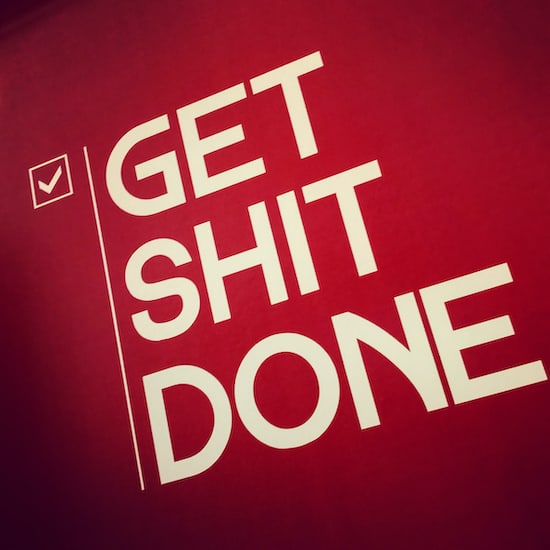
“Action Azahiro”.
That was what they used to call me – from high school to college right into my working years.
For a long time, my motto was simple: “Just do something.” In fact, my favorite quote was one by the famous self-help guru Jack Canfield (the guy behind the popular Chicken Soup For The Soul series):
Don’t just sit there. Do something.
I had spent the last few years in my working life in an Internet startup. In that world, “moving fast and breaking things” was the order of the day.
My bet is that you’re somewhat similar to me. If you’re someone who is motivated to do important things (since you’re reading my blog!), you’re probably used to getting tested all the time. Problems at work, problems at home, problems with your expanding waistline, problems with your woman…
And how do guys solve problems? By taking action. We deal with difficulties by facing them head-on. Sometimes we win. Sometimes we get our arses handed to us. Sometimes we get discouraged and we turn to self-help stuff, like this quote from Brian Tracy: “If you want to succeed faster, double your rate of failure.”
Sorry, Mr Tracy, but that’s bad advice. Successful people are, by definition, successful because they have stopped failing.
The Myth of Immediate and Persistent Action
Our culture is one of “doing things”. And so, people have the inclination to “do something”: to be busy as the default.
Hustle and grind, right?
Wrong. Often, “taking action” is a bad idea. In many cases, we are headed in the wrong direction. Relentless action will only get us to the wrong destination faster.
Of course, there’s merit to the idea where one needs to act and then course correct along the way. However, this presumes that he already knows where he is going, and why. And believe me when I say this, but most people don’t.
The 80/20 principle applies here: choosing your direction will overwhelmingly influence how successful you will be. Hard work (after you are sure where you want to go) is still important, but matters much less when compared to where you want to go.
If you don’t know where you want to go, and why, then “just do something” is simply a recipe for disaster.
Setting your direction requires deep thought. It’s harder than “taking action”. In fact, hard thinking is of several order of magnitude harder than hard work.
(And that’s why most people like to be busy – because it excuses them from thinking – which is harder.)
If you find yourself getting overwhelmed with work and getting list in the minutia of the day, ask yourself:
Am I avoiding hard thinking?
Results Are Not Always Accretive To Action
So, let’s say you’ve done the hard thinking.
You’ve locked yourself in a room somewhere, freed yourself from distractions. You’ve spent hours sketching out your plans. And, after much deliberation and deep thinking, you have figured out what you want to do with your life with great certainty.
It’s time to take massive action, right?
Well, not quite.
It’s true that plans without action will amount to nothing. However. you must also consider what lies on the other side – excessive action is often counter productive.
If anything, we will make the mistake of overdoing things. Let’s say we try many different things, and we find something that gives us the results that bring us closer to our goals. What do we do next? We will double down on that action, thinking that we will then get to our goals quicker.
Foolhardy!
We forget that results are not usually linearly correlated with action. On a smaller scale, something may work great. However, when done on a bigger scale, the gain may not increase correspondingly; it could even lead to a loss.
Action bias is a real phenomenon; it is a cognitive flaw that can be hard to overcome.
The Paradox of Actionless Action
In Taoism, there’s an interesting concept known as “Wu Wei”.
There’s no direct translation that will capture the meaning accurately; the best that I could find is this definition:
“Actionless Action”
Like a lot of Taoist concepts, it’s a paradox, but one which encapsulates life well.
To live according to Wu Wei is to go with the flow of life; you will embrace the ever-changing situation without the need of over-exerting yourself.
And when you embark on your the grand plan, instead of trying to control everything and “force” your progress, relax. Your actions should be effortless, unfolding in the right manner under the right circumstances and in the right time.
Finally, understand that non-action is often good strategy. Choosing not to act under murky situations is a smart thing to do. Refraining from taking action requires a lot of discipline (and pauseability) – especially when we have been conditioned to believe that “fortune favors the bold”. It doesn’t.